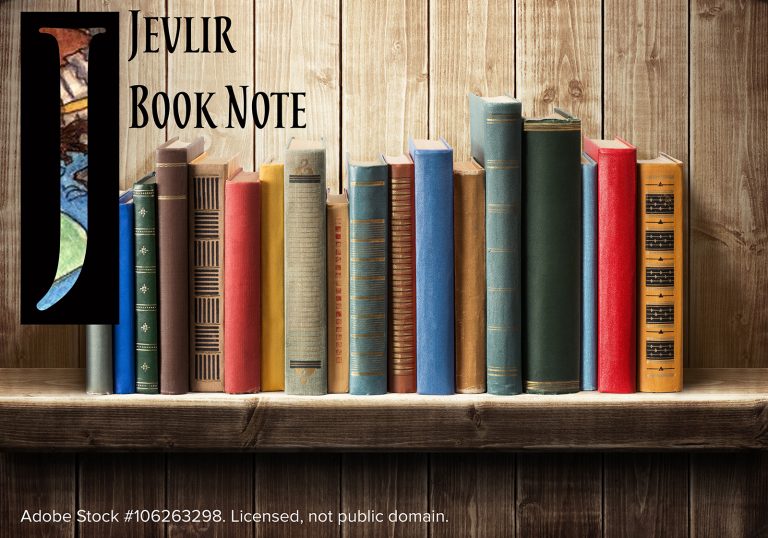Defining Good Literature (Or Not)
Note: This is a long post with me bloviating on what I regard as good literature and how I come up with my ratings in book notes. This is fair warning for those who expect shorter, lighter material on this blog.
I have been a reader for as long as I can remember. As soon as I discovered what reading could do for me, I fell in love with books. My parents knew what they could get me for a birthday or Christmas present—a book would always be well received.
My parents were opposed to fiction. Not just certain types of fiction—all fiction. I got my first introduction to fiction in 9th grade English by correspondence. I was permitted to read the fiction in the course because it was required, but I was not to read anything that was not assigned. I ate it up. Then I left home, and went a long ways. My parents were still in South America and I was in the states to go on to school. At my brother-in-law’s house I was introduced to science fiction starting with Robert Heinlein. I read Stranger in a Strange Land, Methuselah’s Children, and Starship Troopers. I’m not at all certain which was first. I couldn’t stop. Heinlein didn’t remain my favorite science fiction writer, though he remained on my list of favorites.
After that I pursued popular fiction, but I’ve always had a special place in my reading for science fiction. Frequently over the years I’ve been informed that my tastes in literature are not very refined or sophisticated. I have to admit that I found reading Dostoevsky of no interest whatsoever, and even Les Miserables only came out a little above medium interest. (I read it initially in French.)
This experience has reinforced my initial tendency to ignore the literary tastes of those around me. Personally I find “lists of books that every educated person must have read” to be exercises in intellectual snobbery. If someone likes a book they can explain to me why I would find it interesting or worthwhile to read.
All of that verbiage leads me to my actual subject. What is the purpose of my book notes on this blog, and just how to I rate the books that I read? Let me tell you that my motivation is not money. I do get some referral fees from Amazon.com, but I have never been able to identify purchases that came from the notes here. Generally, it’s my recommendations in Bible translations or books on Biblical studies, which are areas in which I work professionally that generate links.
My primary motivation is simply the discipline of thinking a bit about a book, why I liked it or didn’t, and recording the fact that I read it and how I felt. I believe that a good book is one you either enjoy or that helps you accomplish whatever you intended by reading it. A good story entertains and/or challenges me. A good non-fiction book informs me in a particular area or challenges my thinking about a subject. A bad book fails to do any of those things.
That means that there’s no objective “good book” and “bad book” for the most part. There are books that will entertain nobody, inform nobody, and challenge nobody. But there are also books that don’t entertain me, but are just the thing for somebody else. What I mean here by a great book is one that manages to make a great combination of entertaining and challenging me. Contrary to the title of this post, I don’t believe there is an objective definition of good literature.
For those few folks who read my book notes on this blog, I want to note what I like and don’t like in literature.
- Integrity – I like my literature to be what it is and to be consistent with its own assumptions. I see this violated mostly in popular literature that contrives special rules to move the plot along. If a story is set in the real world, it should live with real world laws of physics and so forth. An adventure story that pretends the impossible can happen needs to have a reason that should be so. There are categories of adventure stories that are based on massive improbabilities or technically improbable stuff, but that’s just part of the story.
It’s really hard for me to define a line here. Generally I will like it if it’s obvious that the author or producer intends the audience to be in on the joke, it works for me. If it appears that he or she is trying to slip one over, I won’t.
- Characters that are logical within the story background. I like characters that are multi-dimensional. I really like writers who can characterize someone with a few lines and nonetheless make them substantial and interesting. I particularly like to be able to predict a character’s attitude based on earlier portions of the book, but it’s even better if I can’t predict the action, but on thinking about it, I realize that it was a logical move for that character.
- Stories that take place within a substantial and interesting world/universe. This includes contemporary fiction, in which I like a substantial sphere in which the story takes place. In science fiction and fantasy I like the universe to be well enough defined so that one can guess what can and cannot happen. New rules need to be introduced for a logical reason (bigger wizard, more advanced aliens) and shouldn’t be the main way the story is carried forward.
- I don’t really like stories of unrelieved darkness and nastiness. I should make it especially clear that this is a preference. I don’t think such stories are “bad.” They just don’t do anything for me.
- I don’t like time travel, except in a few cases where it’s handled with considerable skill (usually in short stories playing with the difficulty) or the rest of the story is good. For example, in Anne McCaffrey’s Pern series, I don’t like the time travel, and don’t think it is well handled, but the story telling is so wonderful, the characters so exceptionally interesting, and the world so much fun, that I hardly notice the time travel problem.
- I like stories that vary from extremely light to very heavy and serious. I read them at different times. Most of the time I read before I go to sleep, and I usually choose lighter reading, because I want to be able to put it down and go to sleep. Series like Lillian Jackson Braun’s “Cat Who” books are great evening reading. They’re interesting enough to keep me reading, but they don’t force a great deal of thinking.
- I like a balance of action and explanation. I will generally not like a book that is all intense action without any exploration of the thinking of the major characters or description of the background, but such explanations need to be scattered around.
- I don’t like grammatical eccentricities, but I usually put up with them. William C. Dietz has a habit of using incomplete sentences. Like this one. It gets on my nerves, but Dietz is such an exceptionally good storyteller otherwise, that I’ll live with it.
- Religion should have a role only as it has a role in the characters’ lives. If I detect that a story is being told for the purpose of presenting me with a moral rather than to entertain, I’ll drop it in a hurry. Christian fiction that in which I can identify the folks who will get converted (or are major targets) within the first couple of pages just annoy me. On the other hand, if one has Christian characters, one of the things they do is witness, and as it fits the story, that’s fine.
- I like there to be right and wrong in the story, though they don’t have to agree with what I would regard as right and wrong. In fact, I find it more interesting if characters have moral standards, but those standards disagree with mine. I also like to see subtlety and shades of moral gray. Some books get by with a serious binary good-evil battle, such as Star Wars or The Lord of the Rings, but in general I don’t see that as a plus.
Those are the major things I notice in books. I hope this will help one or two readers with understanding my notes.
Discover more from The Jevlir Caravansary
Subscribe to get the latest posts sent to your email.


